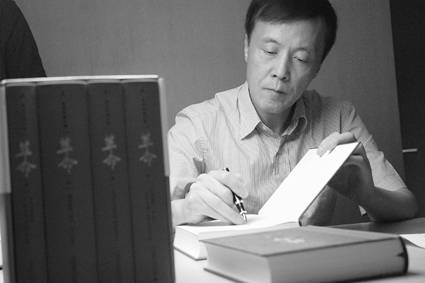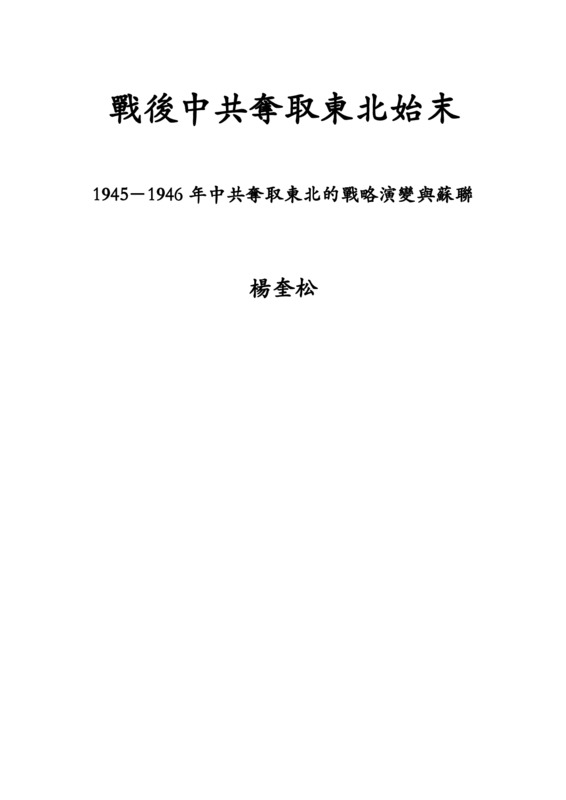Explore the collection
Showing 4 items in the collection
4 items
Book
Living Monument in the Square: June 4 Bloodshed through the Eyes of a Hong Kong Woman Reporter
The author of this book was a reporter for "Sing Tao Daily" and was stationed in Beijing at the end of April 1989 to cover the democracy movement. The book is divided into six main parts: Square Facts records the course of the 1989 democracy movement, from the author's visit to Beijing in April to the early morning of June 4, when she and the masses were evacuated from Tiananmen Square. The second part concerns post-hijacking memories, which are some of the author's interviews from 1989. The third part concerns the interviews. The author had interviewed 7 student leaders and intellectuals that year. The leaders told her the reasons why they devoted themselves to the student movement. The fourth part is about the rest of the author's life, from June 4 to December 1990. The author has recorded some fragments of her speeches to the secondary school students in Hong Kong. Some of them are sentimental, some of them are confessional, and all of them are sincere and heartfelt. The fifth part is "Twenty Years of Wounds," which is a reminiscence written by the author on the 20th anniversary of June Fourth. The sixth part is about the grassroots of June 4. These grassroots actors have been pretty much forgotten. The author wanted to write a biography of the grassroots of June 4 in order to fill in gaps in history.
Article
Yang Kuisong: A Study of New China's "Counter-Revolutionary Suppression" Campaign
How many people were "killed," "imprisoned," and "controlled" in the whole "anti-revolution" campaign? Mao Zedong later said that 700,000 people were killed, 1.2 million were imprisoned, and 1.2 million were put under control. Mao's statement was naturally based on a report made in January 1954 by Xu Zirong, deputy minister of public security. Xu reported at the time that since the anti-revolution campaign, the country had arrested more than 262,000, of which "more than 712,000 counter-revolutionaries were killed, more than 12,900,000 were imprisoned, and 1,200,000 were put under control, and more than 380,000 were released through education because their crimes were not considered serious after their arrest." (3) Taking the figure of 712,000 executed, it already amounts to one and two-fourths thousandths of one percent of the country's 500 million people at that time. This figure is obviously much higher than the one-thousandth of a percent level originally envisioned by Mao Zedong.
Article
Yang Kuisong: The Beginning and End of the CCP's Seizure of the Northeast after the War
The occupation of the Northeast was key to the CCP's success in seizing power in 1949. The author of this book, Yang Kuisong, is a professor and doctoral director of the Department of History at East China Normal University, and a researcher at the Institute of Modern History at the Chinese Academy of Social Sciences. This book describes the CCP's taking of the Northeast as well as the competition between the U.S. and the Soviet Union at that time. After reading it, you will understand: how the Soviet Union played a key role in the CCP's occupation of the Northeast.
图书
#MeToo in China Archives 2018.1-2019.7
On New Year's Day 2018, Beihang University graduate Luo Xixi took the lead in breaking China's silence on the issue of sexual harassment when she publicly reported on social media that Beihang professor Chen Xiaowu had sexually harassed her. This was the first major event in China’s #Metoo movement, which has since spread from colleges and universities to other fields. #Metoo provoked an unprecedented discussion in China, and the issues of feminism and sexual harassment attracted a rare and widespread attention, with a variety of complaints, comments, studies, and advocacy articles springing up all over the internet.
<i>#MeToo in China Archives 2018.1-2019.7</i> is a compilation of sexual harassment-related articles written between January 2018 and July 2019. This archive is massive, totaling more than 2,500 pages, and is divided into three main volumes: “#Metoo in Higher Education”, “#Metoo in other fields”, and “#Metoo discussions’. Volume I and Volume II consist of individual #Metoo cases, arranged in chronological order. Articles in volume 3 can be broadly categorized into general reviews, investigative reports, personal stories, advocacy and activism, tools and resources,etc. During the #Metoo movement, many liberal public intellectuals questioned the movement, likening it to big-character posters during the Hundred Flowers campaign, and arguing that it might lead to the proliferation of wrongful convictions. It triggered heated debates, and this archive also contains a number of related articles.
The process of compiling this archive itself became an act of resistance, given the severe repression on freedom of expression and social movements. The editorial team faced tremendous challenges in collecting articles that had been deleted or published as images to bypass online censorship. It spent a great deal of time and personnel piecing together scraps of information and transcribing words in images. Reading traumatic personal stories - including those about the hardships in seeking remedies - caused psychological trauma for the editors themselves.
Nevertheless, #Metoo has also a process of collective healing, in which women with shared experiences saw each other, realized the structural problems behind sexual violence, and gained the strength to move on and push for change. Finally, during the compilation process, the editorial team also benefited from archiving efforts made by other websites and individuals, demonstrating that the rescue and preservation of people’s history is a collective and collaborative task.
This archive is published on https://chinesefeminism.org/.



